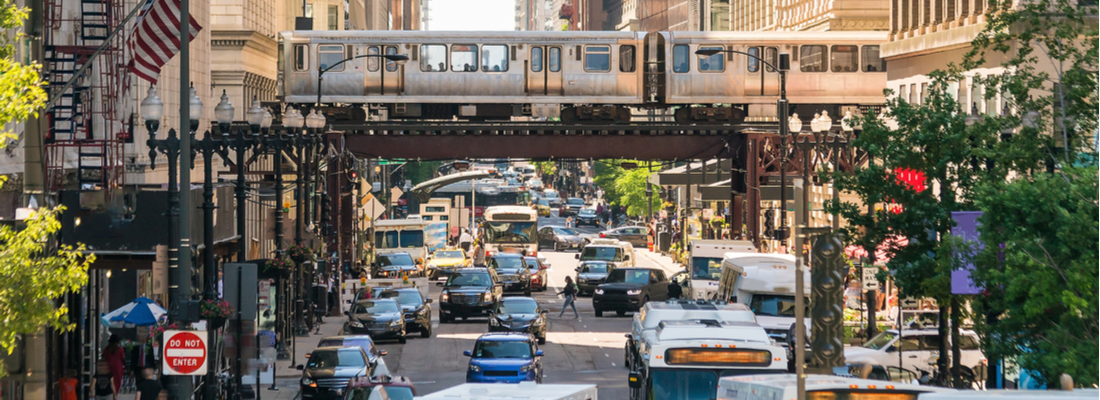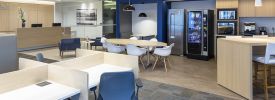
Reading time: 2 Minutes
The Windy City has become a hotspot for the new way of working
Anyone looking for flexible-office space Chicago is in luck: as the trend for flexspace continues to grow all over the world, the Windy City is set to benefit from 50 brand-new sites this year. And as coworking brands proliferate and the competition heats up, the amenities more commonly found in the hospitality industry are becoming included as part of the package: blow-dry salons, childcare, laundry services and yoga studios, plus coffee and wine on tap, are just some of the extras designed to attract new members to a way of working that aims to provide a one-stop shop for employees and entrepreneurs alike.
Shaniqua Davis, who runs a recruitment agency that specialises in finding people from diverse backgrounds, enjoys the camaraderie of being in a communal space that also offers desks and meeting rooms in which to concentrate when a quiet area is required. “I’m a small company… I’m only one person,” she told the Chicago Tribune. “I love working in coworking spaces.” According to research from Newmark Knight Frank, she’s not the only one: from 94 sites and 3.4m sq ft in 2019, flexspace demand in Chicago is such that those numbers are set to expand to 163 sites over 4.2m sq ft by the end of 2020.
The world’s largest provider of flexspace, Regus has a part to play as the sector looks to diversify to accommodate niches of all kinds. “It’s important to always remain relevant,” said Michael Berretta, Vice President of Network Development at parent company IWG. “The focus is always going to be around a professional work environment that’s coupled with an interesting experience.”
As the choices for coworking in Chicago proliferate, the benefits of Regus spaces are clear: being part of a global network with 3,000 locations (and more on the way) offers a community of 2.5m likeminded individuals around the world, plus the flexibility to grow without commitment – and access to offices wherever you are, making business trips a breeze. For companies, it’s a way to promote employee wellbeing while maintaining an agile working model that’s also responsive to a changing economic climate. And because flexspace can be adapted to suit both corporate and consumer needs, it’s no wonder that commercial real estate services firm JLL predicts that 30% of all office space will be flexible by 2030. Like Davis comments, it all comes down to one word: “It’s flexible.”


